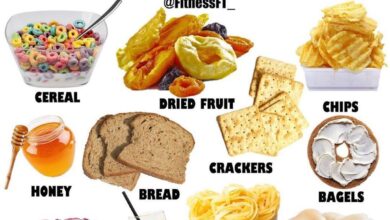
4 Emotional Factors of Weight Loss Nobody Talks About
We all know the basics of weight loss: eat less, move more. But what if the real roadblocks to shedding those extra pounds are hiding in our minds? 4 emotional factors of weight loss nobody talks about can be just as powerful as any diet or exercise plan.
From the fear of success to the pressure of social expectations, these hidden hurdles can keep us stuck in a cycle of self-sabotage. Let’s dive into the psychology behind weight loss and discover how to overcome these emotional obstacles.
This journey into the emotional landscape of weight loss will explore four key factors that often go unaddressed: the fear of success, the impact of body image and self-esteem, the influence of social support and peer pressure, and the link between emotional eating and stress.
By understanding these factors and developing strategies to manage them, we can create a more supportive and effective environment for lasting weight loss.
Body Image and Self-Esteem: 4 Emotional Factors Of Weight Loss Nobody Talks About

The journey to weight loss isn’t just about shedding pounds; it’s about transforming your relationship with your body and fostering a positive self-image. Body image and self-esteem are intertwined, impacting how you perceive yourself, your motivation, and your overall well-being.
The Impact of Negative Thought Patterns
Negative thoughts can sabotage your weight loss efforts and undermine your self-esteem. Common negative thought patterns include:
- All-or-Nothing Thinking:Viewing yourself as either completely successful or a complete failure based on small setbacks or deviations from your plan.
- Overgeneralization:Assuming that one negative experience will continue indefinitely. For example, if you have a “bad day” with food, you might conclude that you’ll never be able to stick to your goals.
- Catastrophizing:Exaggerating the potential consequences of a slip-up, believing it will lead to a complete unraveling of your progress.
- Labeling:Attaching negative labels to yourself, such as “lazy” or “weak-willed,” which can erode your confidence and motivation.
Strategies for Improving Body Image and Self-Esteem
It’s crucial to cultivate a more positive relationship with your body and nurture your self-esteem throughout your weight loss journey. Here are some effective strategies:
- Focus on the Positive:Make a conscious effort to appreciate your body’s strengths and accomplishments. Celebrate small victories, such as increased energy levels, improved fitness, or fitting into a smaller size.
- Challenge Negative Thoughts:When negative thoughts arise, question their validity. Ask yourself if they are based on facts or simply assumptions. Replace those negative thoughts with positive affirmations that reinforce your self-worth.
- Practice Self-Compassion:Be kind to yourself, especially during setbacks. Everyone makes mistakes; acknowledge them and learn from them without self-criticism.
- Engage in Activities You Enjoy:Find activities that make you feel good about yourself, whether it’s dancing, painting, or spending time in nature. These activities can boost your mood and enhance your self-esteem.
- Surround Yourself with Supportive People:Seek out positive relationships with people who encourage and uplift you. Avoid those who constantly criticize or put you down.
Social Support and Peer Pressure

The influence of our social circles on our weight loss journey is undeniable. The presence of supportive friends and family can significantly impact our motivation, accountability, and overall success. Conversely, negative social influences can hinder our progress and even sabotage our efforts.
It’s not just about calories in, calories out. Weight loss is deeply tied to our emotional state. There’s the fear of failure, the frustration of setbacks, and the joy of finally fitting into that old pair of jeans. But have you ever considered how pushing your physical limits can impact your mental well-being?
That’s where ultra walking comes in. Everything you need to know about ultra walking is right here, and it might just be the emotional boost you need to conquer your weight loss goals. By challenging yourself physically, you can unlock a sense of accomplishment and resilience that translates into a more positive mindset overall.
Understanding the dynamics of social support and peer pressure is crucial for navigating this complex aspect of weight loss.
Positive Social Support and Its Impact
Positive social support plays a vital role in promoting healthy habits and achieving weight loss goals. When surrounded by people who encourage, motivate, and celebrate our progress, we are more likely to stay committed to our goals.
We often focus on the physical aspects of weight loss, but the emotional side is equally crucial. It’s about understanding self-worth, managing stress, and building a healthy relationship with food. For moms who love to cook and bake, finding gifts that nourish their passion can be a great way to support their journey.
Check out these gift ideas for food-loving moms to inspire their culinary adventures and help them find joy in the kitchen. Ultimately, addressing these emotional factors can lead to a more sustainable and fulfilling weight loss journey.
- Increased Motivation:Supportive friends and family can provide encouragement and motivation, reminding us of our goals and celebrating our milestones. Their positive reinforcement helps us stay focused and energized, especially during challenging times.
- Enhanced Accountability:Knowing that others are aware of our goals and progress can create a sense of accountability. We are less likely to indulge in unhealthy habits or skip workouts when we know we will have to explain ourselves to our support system.
We often focus on the physical aspects of weight loss, but the emotional side plays a huge role. From self-doubt to the fear of failure, these inner battles can be just as tough as the gym sessions. It’s inspiring to see how Brianna overcame her own struggles, as you can read in her story how Brianna went from giving up to giving it her all.
Her journey reminds us that addressing these emotional factors can be the key to unlocking lasting success in weight loss.
- Reduced Stress and Anxiety:Social support can buffer against stress and anxiety, both of which can contribute to unhealthy eating habits. Feeling loved and accepted by our social network helps us cope with stress in a healthier way.
Negative Social Influences and Their Impact, 4 emotional factors of weight loss nobody talks about
While positive social support is invaluable, negative social influences can be detrimental to our weight loss journey. These influences can include:
- Peer Pressure to Indulge:Being surrounded by friends or family members who engage in unhealthy eating habits can create pressure to conform. This can lead to feelings of isolation or inadequacy if we choose to prioritize our health.
- Lack of Support or Understanding:When those around us do not understand or support our weight loss goals, it can be isolating and discouraging. This lack of support can make it harder to stay motivated and committed to our journey.
- Sabotaging Behaviors:Some individuals may intentionally or unintentionally sabotage our efforts. This could include offering tempting treats, making negative comments about our choices, or undermining our confidence.
Building a Supportive Social Network
Building a supportive social network is essential for navigating the challenges of weight loss. Here’s a guide to creating a network that promotes healthy habits:
- Identify Supportive Individuals:Surround yourself with people who genuinely care about your well-being and support your goals. These individuals should be encouraging, understanding, and willing to help you stay on track.
- Seek Out Like-Minded Individuals:Connect with others who are also working towards healthy lifestyles. This could involve joining a gym, support group, or online community. Sharing experiences and challenges can provide valuable support and motivation.
- Set Boundaries:It’s important to establish clear boundaries with individuals who may not be supportive of your goals. This could involve politely declining invitations to events that involve unhealthy foods or activities that could hinder your progress.
- Focus on Positive Influences:Actively seek out positive social interactions that reinforce your commitment to healthy habits. This could involve spending time with supportive friends, attending fitness classes, or participating in activities that promote well-being.
Emotional Eating and Stress Management

It’s no secret that stress can lead to unhealthy eating habits. When we’re feeling overwhelmed, anxious, or down, we may turn to food for comfort. This is known as emotional eating, and it can sabotage our weight loss efforts. Understanding the link between emotional eating and stress is crucial for breaking this cycle and achieving sustainable weight loss.
Identifying and Managing Emotional Triggers
Emotional triggers are specific situations, thoughts, or feelings that can lead to emotional eating. Identifying these triggers is the first step towards managing them.Here are some tips to help you pinpoint your emotional triggers:
- Keep a food journal. Record what you eat, when you eat, and how you’re feeling before, during, and after eating. This can help you identify patterns and recognize triggers.
- Pay attention to your emotions. Become aware of your emotional state before reaching for food. Are you feeling stressed, bored, lonely, or angry? Understanding your emotions can help you address them in a healthier way.
- Challenge your thoughts. Ask yourself why you’re reaching for food. Is it because you’re truly hungry, or are you trying to numb your emotions?
Once you’ve identified your triggers, you can start to develop strategies for managing them. This might involve finding healthier ways to cope with stress, such as exercise, meditation, or spending time with loved ones.
Healthy Coping Mechanisms for Stress
Stress is a normal part of life, but chronic stress can have detrimental effects on both our physical and mental health. It is important to develop healthy coping mechanisms to manage stress without relying on food.Here are some effective strategies:
- Exercise: Physical activity releases endorphins, which have mood-boosting effects. Aim for at least 30 minutes of moderate-intensity exercise most days of the week.
- Meditation and mindfulness: These practices can help you calm your mind and manage stress. There are many guided meditation apps available that can make it easier to get started.
- Spending time in nature: Being in nature has been shown to reduce stress and improve mood. Go for a walk in the park, sit by a lake, or simply enjoy the fresh air.
- Connecting with loved ones: Social support is crucial for managing stress. Spend time with friends and family, or join a support group.
- Creative outlets: Engaging in hobbies you enjoy, such as painting, writing, or playing music, can be a great way to relieve stress.
- Getting enough sleep: Sleep deprivation can increase stress levels. Aim for 7-8 hours of quality sleep each night.
Final Wrap-Up
Embracing our emotional journey alongside our weight loss goals can transform the process into something empowering rather than a constant struggle. By addressing the fear of success, nurturing our self-esteem, building supportive connections, and finding healthy ways to manage stress, we can unlock a new level of self-awareness and create a path towards a healthier, happier you.
Remember, weight loss is a multifaceted journey that requires not only physical changes but also emotional growth and self-compassion.






